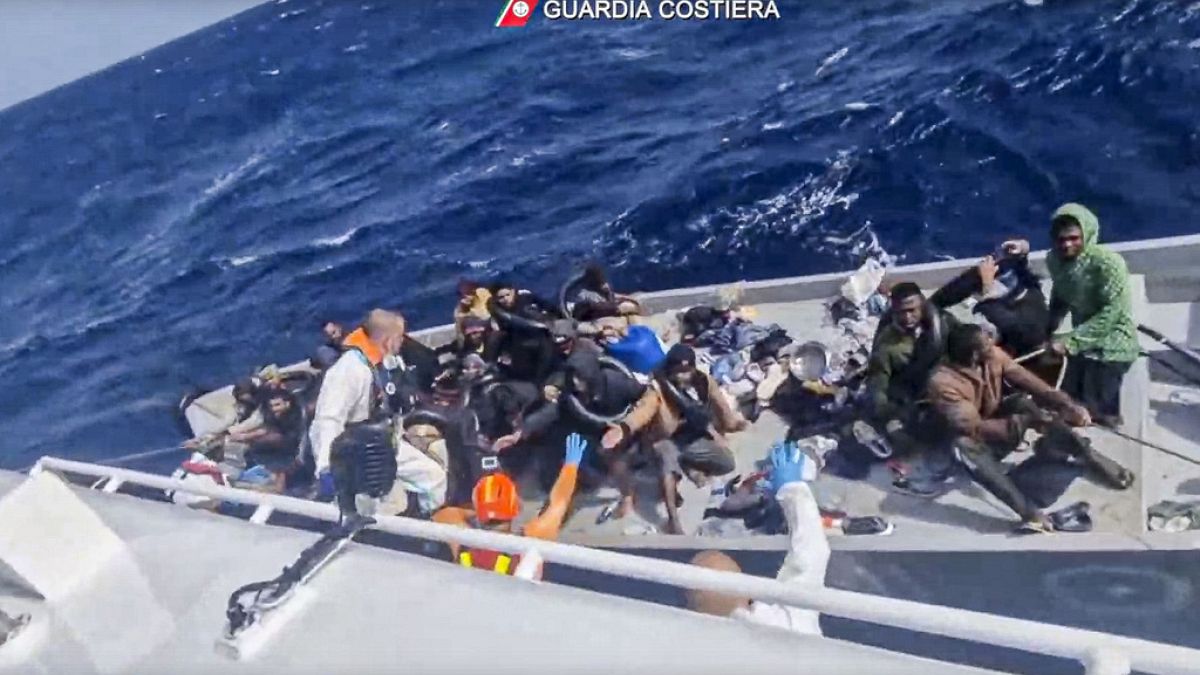The adoption of the EU’s pact on migration and asylum has caused a deep divide among leaders and opposition parties in Italy. Giorgia Meloni, Italy’s prime minister since 2022, has faced the challenge of curbing illegal migration. Despite her efforts, the number of arrivals from North Africa has sharply increased during her tenure, making it difficult for her to fulfill her main promise. However, she has been credited with changing Europe’s approach to migration as she launched her party’s campaign ahead of the upcoming European elections. Official data for the first three months of 2024 shows a decrease of more than half in the number of arrivals compared to the same period last year, thanks in part to Italy’s support of the recent EU-Tunisia deal.
Italy’s government has strongly supported the recent agreement between the EU and Tunisia, which has resulted in a significant decrease of almost 60% in the number of departures. This success has been hailed as a step in the right direction towards managing the migration crisis. In addition, Italy has been pushing for the development of outsourcing asylum policies, such as the protocol signed with Albania. This approach has gained support among various EU member states, further highlighting the divisions within the Italian parliament on this issue. The government’s efforts to address migration challenges through international partnerships and policy initiatives have been met with mixed reactions from different political factions.
Giorgia Meloni’s leadership in tackling the migration crisis has been closely watched by both supporters and critics. As Italy’s prime minister, she has faced significant obstacles in managing the influx of migrants from North Africa. However, her efforts have not gone unnoticed, with the recent decrease in arrivals being attributed to her government’s support of the EU-Tunisia deal. Despite the progress made, divisions within the Italian parliament remain pronounced, particularly regarding the outsourcing of asylum policies. The ongoing debate over the direction of Italy’s migration and asylum strategy reflects the complex and contentious nature of the issue at both national and European levels.
The EU’s pact on migration and asylum has highlighted the challenges and complexities of addressing migration issues in Italy. Giorgia Meloni’s leadership in this area has been marked by both successes and obstacles. The recent decrease in arrivals following the EU-Tunisia deal demonstrates the potential impact of international partnerships on managing migration flows. However, the divisions within the Italian parliament over asylum policy outsourcing suggest that more work is needed to find common ground on this contentious issue. As Italy continues to navigate the migration crisis, the role of leadership and cooperation both within the country and at the EU level will be crucial in finding sustainable solutions to this complex issue.
In conclusion, the adoption of the EU’s pact on migration and asylum has sparked intense debate and division within Italy’s political landscape. Giorgia Meloni’s leadership in addressing the migration crisis has faced challenges, but also garnered some successes, such as the recent decrease in arrivals. The government’s support of international agreements, such as the EU-Tunisia deal, has contributed to a more coordinated approach to managing migration flows. However, the ongoing divisions within the Italian parliament over asylum policy outsourcing indicate the need for further dialogue and collaboration to develop a cohesive and effective strategy. As Italy continues to grapple with migration challenges, finding common ground and working towards shared solutions will be essential in addressing this complex and pressing issue.











